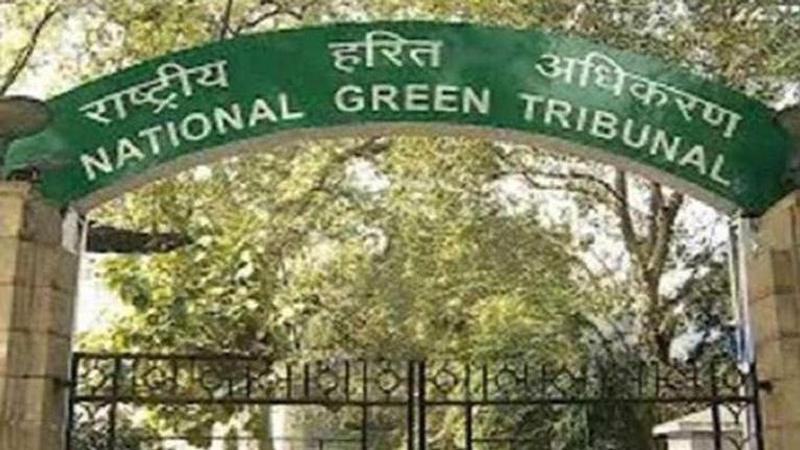Published 18:52 IST, June 20th 2020
NGT asks CPCB to explain coercive steps taken against Amazon, Flipkart on plastic waste
The NGT has directed the CPCB to inform it about coercive steps taken against e-commerce giants Amazon, Flipkart for non-compliance of plastic waste management

The National Green Tribunal has directed the Central Pollution Control Board (CPCB) to inform it about coercive steps taken against e-commerce giants Amazon and Flipkart for non-compliance of plastic waste management rules.
A bench headed by NGT Chairperson Justice Adarsh Kumar Goel said the report filed by the apex pollution monitoring body does not mention the coercive steps taken in accordance with the provisions of the Environment (Protection) Act, 1986 and the plastic waste management rules. Coercive steps may include prosecution, recovery of compensation on 'Polluter Pays' principle, the NGT said.
"Let the CPCB take appropriate action and file a further report in the matter before September 10. Report be sent by e-mail... It is stated that instead of Amazon Retail India Private Limited, liability is of Amazon Seller Service Private Limited which may be looked into by the CPCB," the bench said.
The CPCB earlier told the NGT that Amazon has not submitted complete documents regarding the quantity of plastic consumption, while the Flipkart has not responded to the communication of the apex pollution monitoring body.
The submission came in response to a plea filed by a 16-year-old boy who has approached the tribunal, through advocate Meenesh Dubey, to stop e-commerce giants Amazon and Flipkart from excessive plastic use in their packaging.
While Amazon has not submitted complete documents regarding their responsibility under the plastic waste management rules and confirmation of quantity of plastic consumption, the Flipkart has not responded to the CPCB's email dated March 4, 2020 and no other correspondence has been received from the firm so far, the apex pollution monitoring body told the NGT.
The CPCB informed the tribunal that Amazon Retail India submitted the application for registration under the plastic waste management rules, 2018 to it on December 5, 2019 having Extended Producer Responsibility of collection and channelisation of 0.5 TPA plastic waste. It further told the tribunal that another firm Flipkart Pvt Ltd has not responded to the CPCB's email dated March 4, 2020 and no other correspondence has been received from the firm so far.
"However, vide letter dated December 6, 2019 Ms Instakart Services Pvt Ltd informed that Flipkart Pvt Ltd is their holding company registered in Singapore and Ms Instakart is engaged in the business of providing logistics and fulfilment services to group companies, it said.
"Flipkart Pvt Ltd is required to submit an application for registration directly to the CPCB or provide requisite documents supporting its linkage with Instakart Services Pvt Ltd," it said. The petition has contended that excessive use of plastic in packaging has given rise to serious environmental challenges.
The CPCB had earlier told the NGT that the e-commerce giants need to fulfil their extended producer responsibility under the plastic waste management rules, 2016 and need to establish a system for collecting back the plastic waste generated due to the packaging of their products. It had informed the green panel that as per provisions 9(2) of the plastic waste management rules, 2016, "Primary responsibility for collection of used multi-layered plastic sachet or pouches or packaging is of producers, importers and brand owners who introduce the products in the market."
"Amazon Retail India Private Limited and Flipkart Private limited are involved in packaging and selling of other companies' products and thus introducing plastic packaging in the market. They need to fulfil their extended producer responsibility under PWM Rules and should obtain registration as brand owner after submitting proper documents," the CPCB had said.
Aditya Dubey, through his legal guardian, has pleaded the NGT to direct Amazon and Flipkart to stop excessive use of plastic in packaging the goods delivered by the firms.
"The e-commerce companies are covered under the Plastic Waste Management Rules, 2016. But due to a lack of monitoring and implementation, the respondents continue to use excessive amounts of plastic in wrapping and packaging their sold items," the plea said.
Dubey's plea contended that the companies deliver items in cardboard boxes, which are too large when compared to the size of the items being delivered. The plea has also said that though the home-delivery service of e-commerce companies has been very useful for consumers, it has given rise to serious environmental challenges due to excessive use of plastics in packaging.
Once goods are delivered, the plastic waste is thrown away in garbage and it ends up at landfill sites, leading to a burden on the earth and damaging the environment, it said. Dubey said the two companies have not made any arrangements for either taking back the plastic material or ensuring that it is recycled.
Updated 18:52 IST, June 20th 2020




